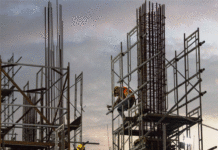By Mr. Pranay Goyal, founder Wedevelopment
As per reports, in 2017, there were 16,000 derelict buildings in Mumbai with a majority of them located in Byculla, Girgaum, Sewri, Parel, Mumbai Central, Nagpada, Bhendi Bazaar, Mohammad Ali Road and Crawford Market.
Across India there are countless old buildings in ruins, facing problems of water leakage, cracks in beams and walls, fragile floors and more. But the staggering figure of crumbling old buildings in Mumbai is worrisome, as news of such establishments collapsing is frequent, with the subsequent death toll on a constant rise. While MHADA repaired 1000 dilapidated buildings, 3000 buildings have been repaired by the homeowners themselves. But for some dilapidated buildings, this is just a temporary resolution that is unreasonably expensive.
In light of the grim situation most societies typically redevelop their buildings through a developer, which then ensues a tug-of-war wherein both parties strive to reap the maximum benefits. As a result, there have been several cases of mismanagement, allegations of corruption and underhand dealings, projects being put on hold, continuously changing building plans, and developers selling common spaces.
Taking all of this into consideration, one of the key approaches to this problem that has been gathering interest is self-redevelopment, whereinsociety members undertake the redevelopment of their homes themselves. Under this method, the society identifies the right professionals to aid the process, conduct feasibility studies, raise funds, execute the construction and deliver quality homes to residents. The funds raised, will then be diverted towards the primary expenses of hiring professionalslike an independent contractor, legal advisor, architect, an accountant and so on, for the execution of the project, and sale of the extra units developed in the process. Given the monumental work involved, the society needs to propose a leader, in unison, who can oversee this DIY project’s progress.
Redevelopment usually increasesthe area of the society,owing to the additional FSI benefits provided by the government. Unfortunately what often happens is that under traditional redevelopment models, developers tend to solely realise these benefits, by acquiring profits through the sale of the additional space for residential and commercial purposes. Contrastingly in self-redevelopment, the homeowners are the sole benefit reapers asthey earn these profits. Different professionals are hired for the execution and management of the project. Hence they have no binding authority on the project, and the society is free to plan and design the new construction, easing the rent allotment procedure and allowing for the acquisition of extra space.To accelerate this process the government has already launched the self-redevelopment scheme, with MHADA promoting a single window system for the prompt processing of self-redevelopment proposals, while the MDCCBank has sanctioned crores in loans to provide financial support to housing societies undertaking self-redevelopment.
The foremost thing for a building to go under self-redevelopment is the consensus among members regarding the project. There is a high level of competence, legal and construction expertise, constant monitoring of changing mandates, proficient management of loans and conflict, project sales, and excellent communication and coordination skills that is required to undertake a self-redevelopment project.
To avoid inefficiency arising from this, societies should hire a professional team to initiate and monitor the entire self-redevelopment process. They in turn handle all the layered complications and procedures, from the conceptualization, the fundraising, to the ultimate execution of the project. By simplifying and accelerating the process, the benefits of self-redevelopment are retained, the process is hassle-free,and the society maintains power over the project. Collaborating with such a team of experts allows the society to extract maximum advantage from the self-redevelopment process.
Corporate Comm India(CCI Newswire)




















